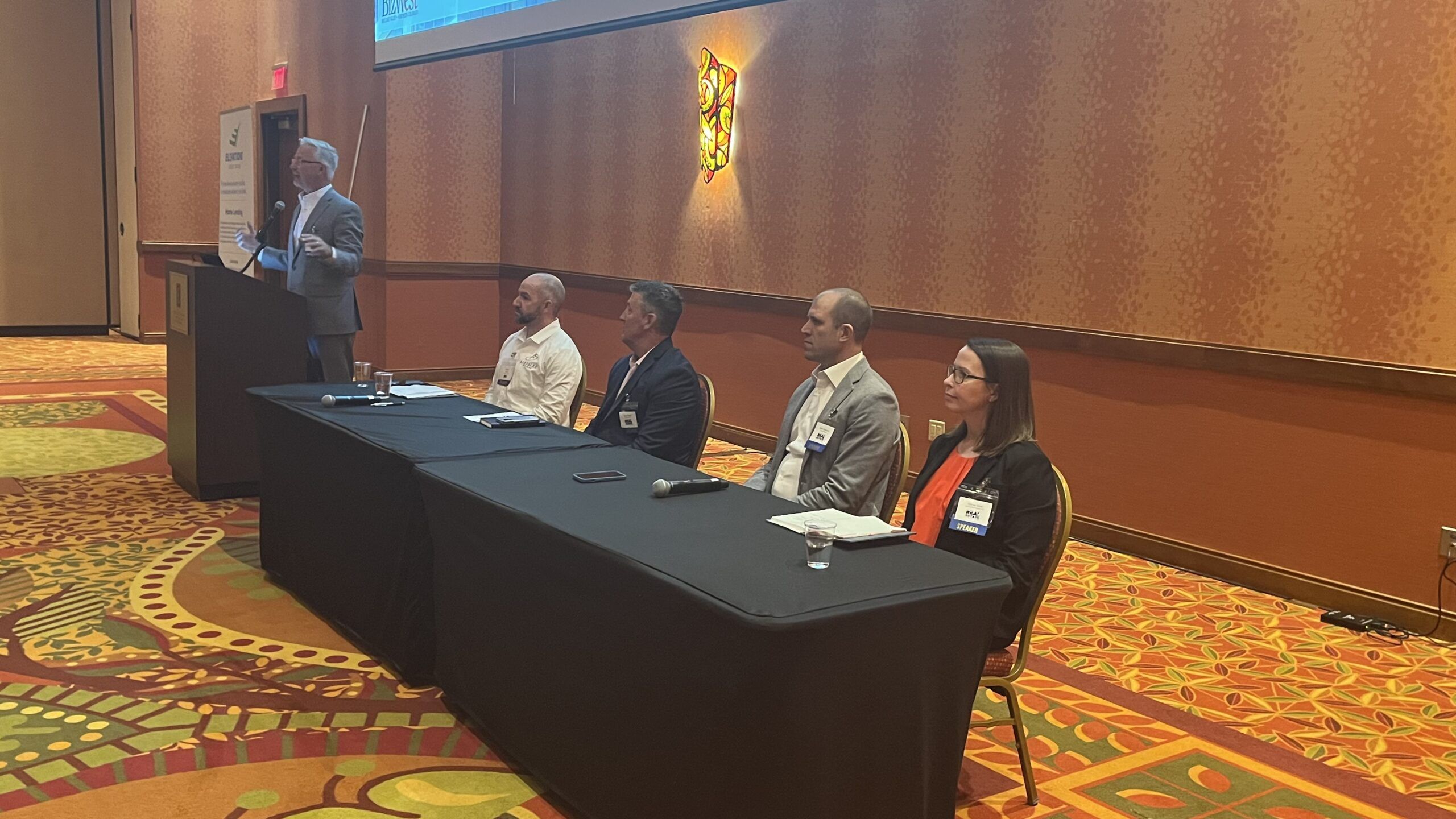Real Estate Summit: Housing policy change requires more people at the table

LOVELAND — Of all the issues affecting housing affordability in the state and Northern Colorado, perhaps the one considered most nettlesome is the relationship, or lack thereof, between builders and the governments that regulate them.
“From 2020 until today, our direct cost of sticks and bricks have gone up 19-20%,” said Ryan Barnes, the director of purchasing for Baessler Homes, which targets first-time homebuyers. “During that same period, jurisdictional costs have gone up 40%. Our average sales price is around the $350,000 mark; 49% goes into land, water and permits. Before we put a shovel in the ground, we’ve spent half our budget.
“Suppliers, trades, manufacturers — we collaborate all the time. If we can do that with jurisdictions, we can solve this problem,” he said.
SPONSORED CONTENT
Empowering communities
Rocky Mountain Health Plans (RMHP), part of the UnitedHealthcare family, has pledged its commitment to uplift these communities through substantial investments in organizations addressing the distinct needs of our communities.
That theme carried the day at a session titled The Housing Policy Landscape at the annual BizWest Northern Colorado Real Estate Summit held today in Loveland.
Darin Atteberry, the market president for Elevations Credit Union and the former city manager of Fort Collins who moderated the discussion, said that municipal planners and builders “are like ships passing in the night,” referring to “the unintended consequences of good intentions. … Government and the private sector should be able to collaborate in a non threatening way.”
But it doesn’t happen, members of the panel said.
“We had a Fort Collins project that we thought we could get through the process in 18 months. We’re going into our third year,” said Jason Sherrill, the CEO of Landmark Homes. “The process is broken. The time to deliver is the problem. The message I’m trying to deliver is about the cost silos, and how we can effect change.”
If builders are able to move more quickly, they can produce more and lower costs, which translates into lower housing prices, he said.
“We’re here to help solve a problem; we’re not the cause of the problem. Sometimes we’re made to feel like we’re seen as the cause of the problem,” Sherrill said.
Stacey Shea, a partner in the Otis and Bedingfield LLC law firm, said housing affordability affects the economy of the whole region. “Wages are not increasing at the same rate as home prices. Workers have to work many more hours in order to afford that first home,” she said. If workers don’t have a place to live, they’ll go elsewhere to work.
She said she was disappointed in the lack of public involvement in the discussion. Atteberry had asked at the start of the discussion how many public sector attendees were in the room, and only two hands went up.
“If we could get all the stakeholders to the table, we could make progress. I don’t have a solution, but I know it’s out there. We have a wealth of information and expertise that we aren’t making adequate use of,” Shea said.
While getting local governments and builders to the table at the same time was seen as a potential solution, state legislation was also touted as potentially helpful, even though some local governments have resisted state efforts to force greater density by usurping local control in land-use codes.
Sometimes, said Brian Rossbert, executive director of Housing Colorado, legislation can “provide cover” to local elected officials who would like to increase density to solve home pricing problems but fear the wrath of voters.
“We work in the policy space. Where can we find affordability in the housing market? And what are the barriers to that? Having to come (before a local board) for a variance or a rezoning adds time and money and headache to the development process. How do you get upstream of that?
“We’d all like to get things entitled in a way that makes development move forward quickly. On a state level, the governor has been vocal of this as well. Housing is a matter of statewide concern,“ Rossbert said.
Sherrill said that some communities permit builders who agree to build to the community’s code to get fast tracked. “You can get a shovel in the ground within six months,” he said. “But that doesn’t exist in Northern Colorado.”
Rossbert said the Legislature has multiple bills this session to help with the issues affecting housing affordability. One of them deals with construction defects, which drive up the cost of building condominiums and townhomes to the point that builders avoid them.
“We’re tracking 21 bills,” he said. “Some are getting pushback from local governments. We’re not mortal enemies. We don’t have different motivations. Eighty-six percent of the public says housing cost is a major issue,” he said.
“It is incumbent upon us to make housing more affordable.”


